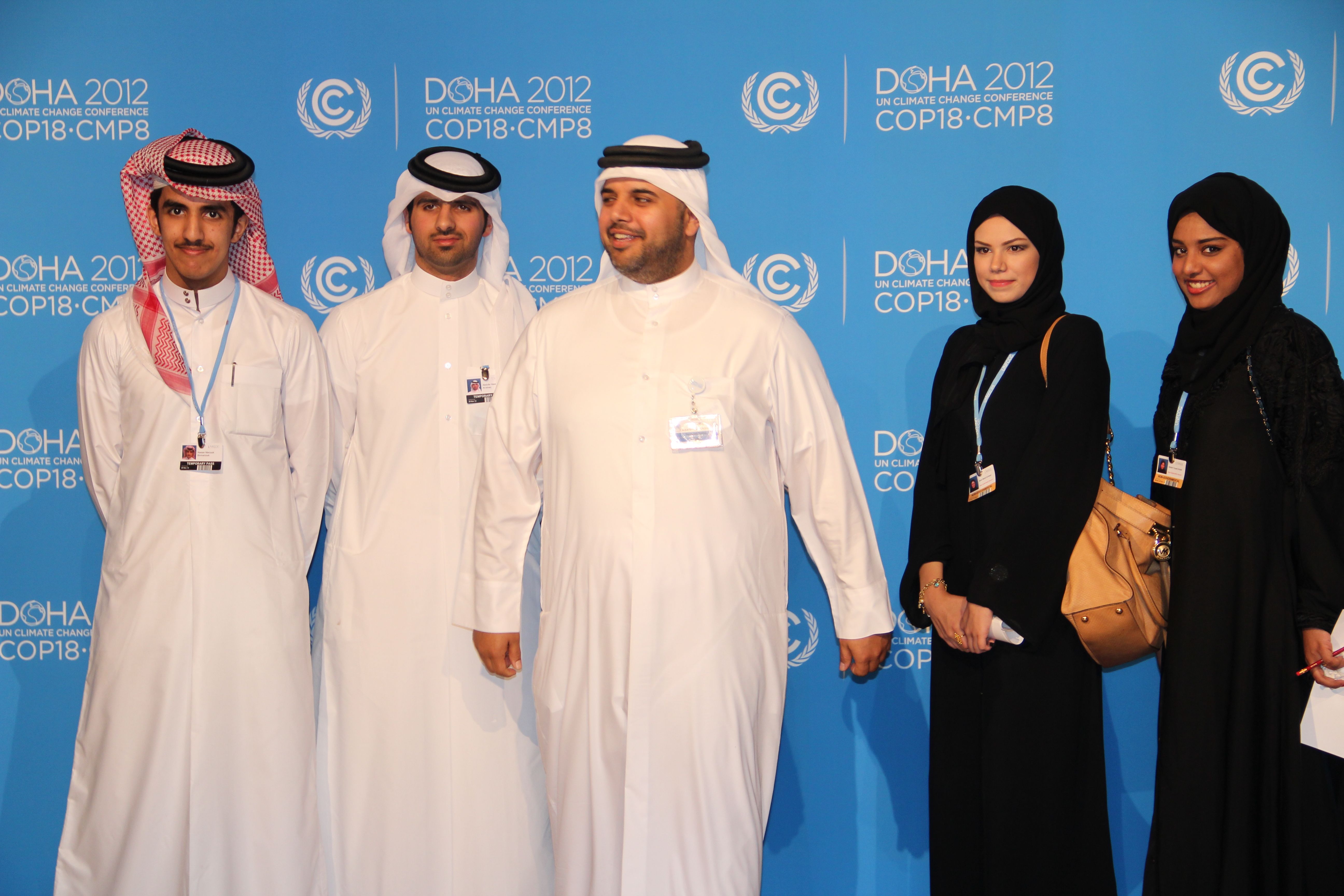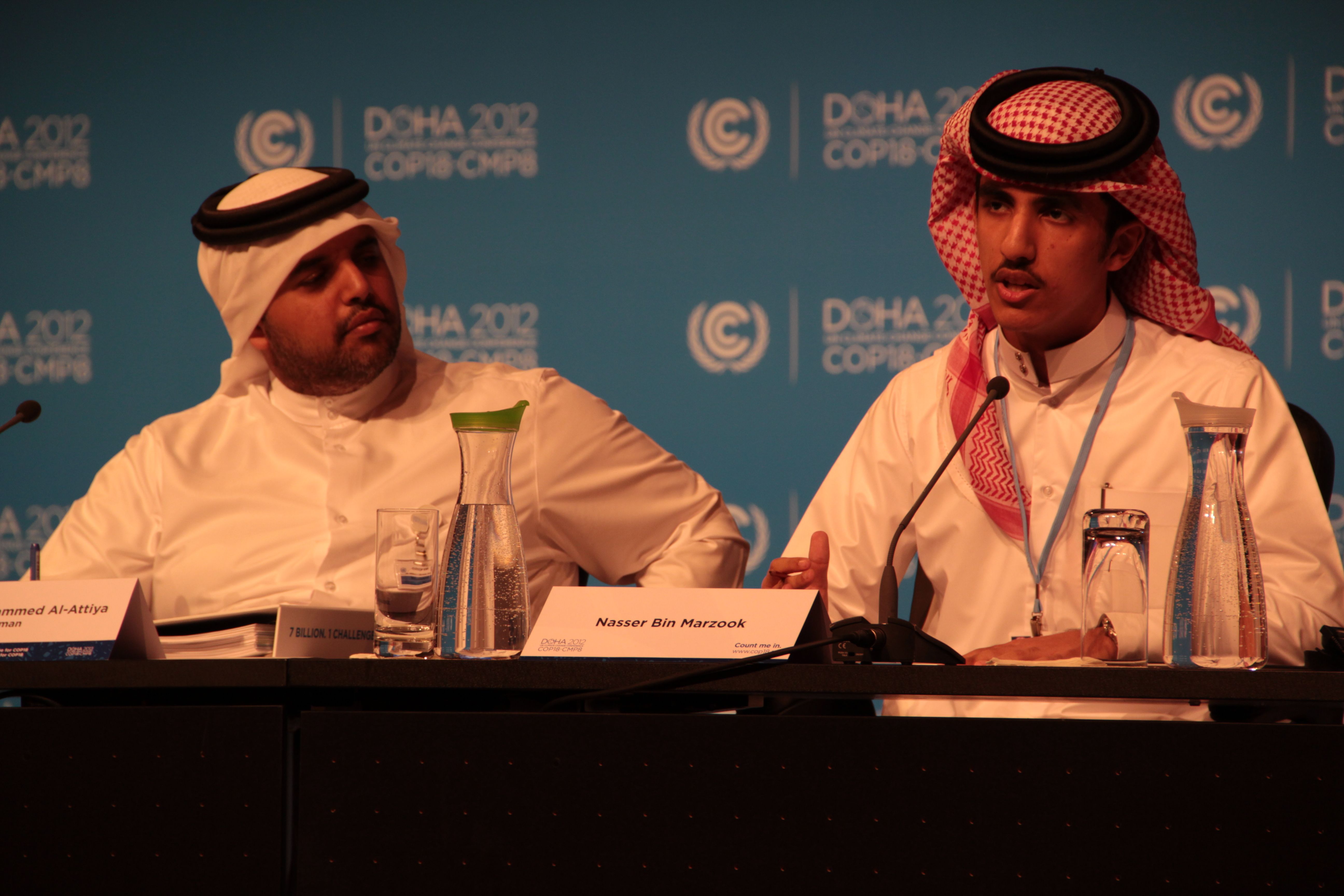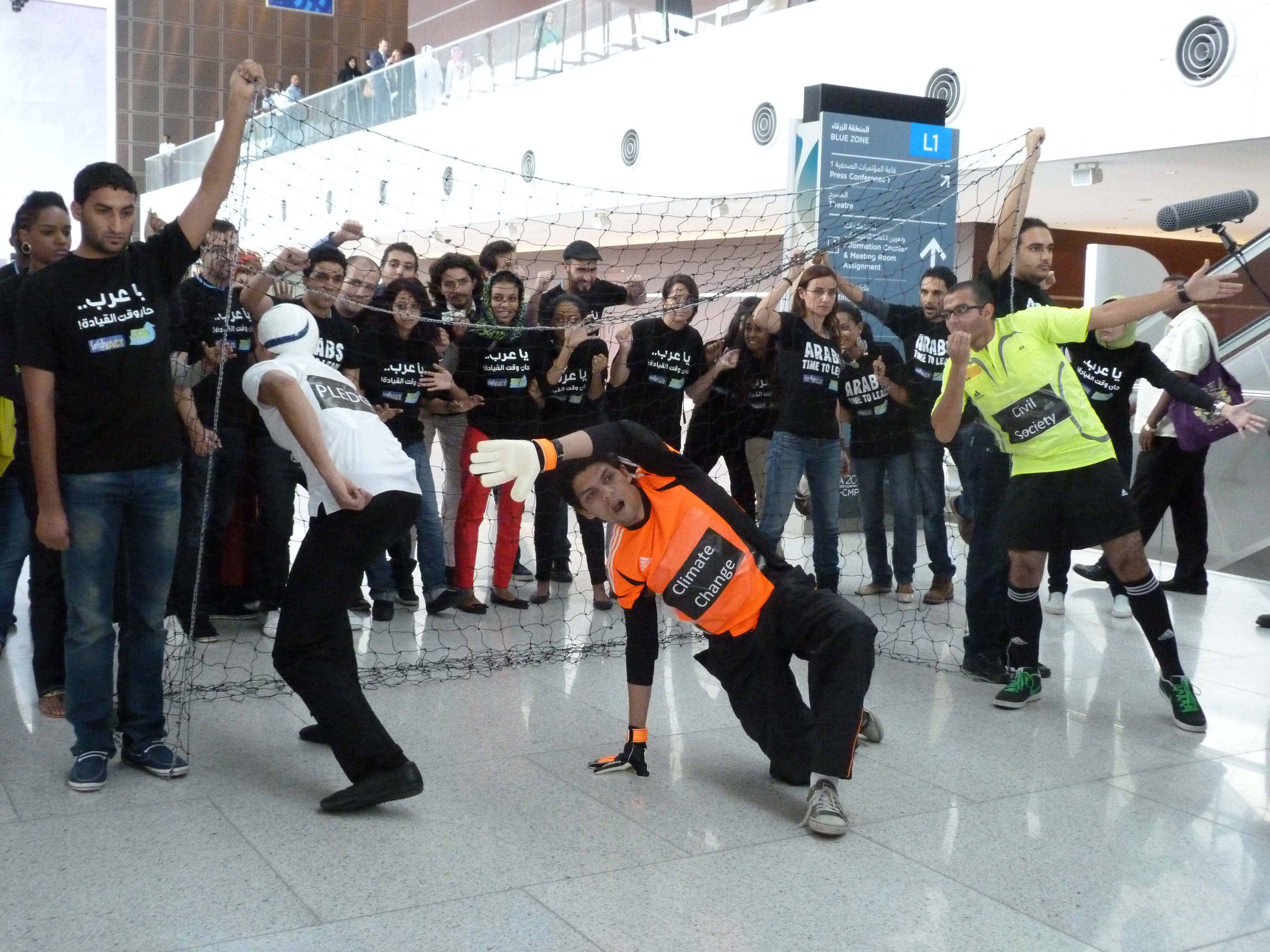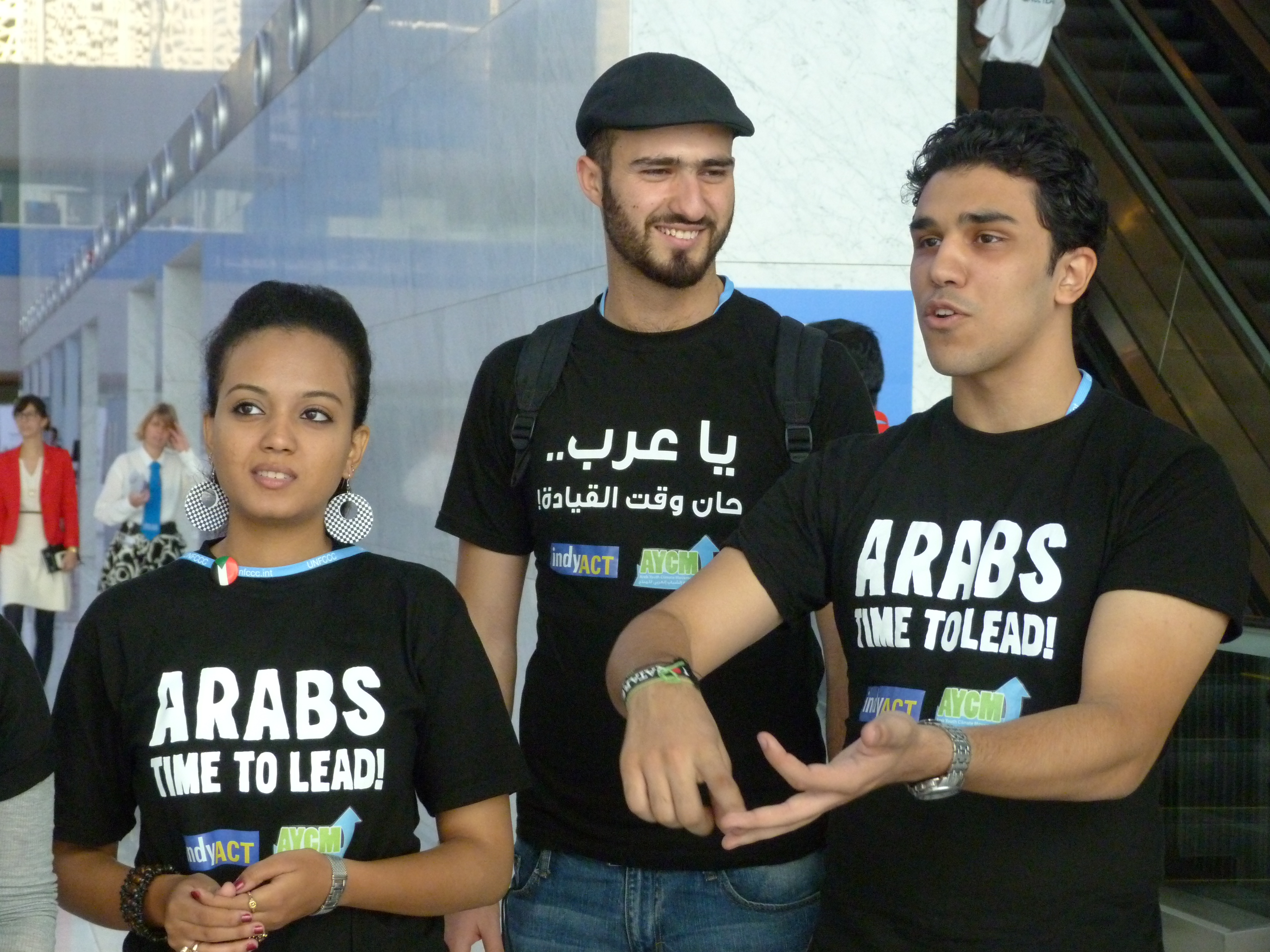Search Results for Tag: cop18
Beach party in the desert
Author: Kerstin Schnatz
They are infamous, a great way to meet new people and loved even by state delegates: The parties of civil society groups during the yearly climate summits.
This year’s party took place on a beach in the middle of the desert, about an hour’s drive away from Doha. We went there to soak up the atmosphere as well as for some late night networking.
1:0 for Bottom Up versus Top Down
Text and fotos by Kerstin Schnatz from Doha, Qatar

Being a monarchy with no elected national parliament up to date, Qatar does not have a history of civil society movements. Despite this lack of democratic history, the emirate currently welcomes civil society delegates from around the world to the 18th United Nations Conference on Climate Change (COP18) – among them many young people. At Youth Day, youngsters from the Arab world demanded a stronger stance on tackling climate change – in very different ways.
Top down: Qatar’s youth ambassadors
„When I was 18 years old, there was only one flight out of London a week. Now there are seven.“ The Quatari Chairman of the Organizing Committee for COP18, his Excellency Fahad Bin Mohammed Al-Attiya, highlights new study opportunities for young Qataris – like the young Nasser Bin Marzook, sitting next to him on the panel. Nasser and his three fellow „youth ambassadors“, appointed by the government, look down into an almost deserted audience with a mixture of shyness and pride.

17 year old Nasser is still at school. During his exchange year in the USA, he learned about the problems of acid oceans as a result of CO2 emissions. As Qatar heavily depends on sea water for their freshwater supply coming from desalination plants, Nasser wants to spread the word about this problem in his own country. His fellow youth ambassador’s approach, 18-year old Mariam Al-Nesf, is a different one: „Here in Qatar we have no rainforest – but we have mangrove forests that we need to protect.“ Sahar Al Ansari, 18, a Freshman at Qatar University, visited a village entirely powered by solar energy in Brazil and wishes to bring renewable energies to his home country. In Qatar, electricity is still 100% derived from fossil fuels, despite the sun shining almost every day.
Each of the young ambassadors speaks for about one minute, their statements sound wooden, studied for a long time. Questions from the audience are answered by his Excellency first – afterwards the youngsters are invited to add an aftertought. When asked how exactly the Qatari government is hoping to cut down CO2 emissions he becomes evasive and hints to new research funds for climate change issues.
Bottom up: The Arab Youth Climate Movement
At the same time, downstairs, a joyful, colourfoul crowd of young people have come together for what looks like a soccer game. The Arab Youth Climate Movement (AYCM) is holding their own version of a press conference – a much noisier and more chaotic one. AYCM is the first climate movement the Arab world has seen in history. Hundreds of young activists from Qatar and other Arab countries have joined together in the forerun to COP 18.

Picture: Anne Allmeling (DW)
These young, energetic people also want to influence the climate negotiations – starting with the host nation Qatar: “Now that they have gotten the world’s attention by hosting this COP, they need to demonstrate that they are about more than beautiful venues and a wealthy gas exporting economy.” Ali Fakhry from IndyACT who helped launching AYCM says. It is a pity that the youth ambassadors appointed by the Qatari government can not hear this pledge. They are still inside the conference room taking a group picture with his Excellency.

Picture: Anne Allmeling (DW)
Climate March: On Saturday, December 1st, the AYCM organises an historic march for climate action in Doha. The Qatari government, who never in the country’s history allowed any similar kind of action before, expreses solidarity with the activists. GLOBAL IDEAS will be at the march to report for you.
Qatar’s new closeness to civil society: During COP18, the emirate is very eager to stress that it has learnt a lesson from COP18. Media events stating “Qatar’s Commitment to Civil Society Engagement on Climate Change Issues” – being the official title of one press conference – are held almost on a daily basis. The Sunday climate march will prove, how eager the Qatari government really is to support a critical civil society in their own country and the Arab region in general.
Follow our GLOBAL IDEAS Facebook page for recent updates from this year’s UN climate conference and the climate march this Saturday.
Get angry @COP18, Qatar
The fourth day of the climate conference in Doha was the official YouthDay, the only day people under the age of 18 could officially participate at the conference. On one panel two grand dames of the climate and human rights negotiations confronted the young people with one particular question: Are you angry enough?
Christiana Figueres and Mary Robinson demanded in direct talks with students from all over the world that they should raise their voices and make themselves heard. The have to show that they care about climate change because of a simple and clear reason: It’s the world they have to live in tomorrow.
Christiana Figueres, Executive Secretary of the United Nations Framework Convention on Climate Change (UNFCCC) from DW_Global Ideas on Vimeo.
and
Mary Robinson, former President of Ireland and United Nations High Commissioner for Human Rights from DW_Global Ideas on Vimeo.
Did the youth raise their voices? Come back here tomorrow, to read more.
Sealevel rises quicker than expected

Many coastal cities, as for example Tokyo, will have to find a way to cope with rising sealevels (CC BY 2.0: oisa/flickr.com)
At the Doha climate change conference, delegates of the COP18 again try to find a practical way how to (further) reduce greenhouse gas emissions. The importance of this goal was again highlighted by a new study released recently by the Potsdam Institute of Climate Impact Research (PIK): Researchers found out that sealevel rose much quicker than projected by the latest IPCC report.
That’s what they saw when comparing the model calculation with real satellite data from 1990 to 2011. According to those satellite measurements, oceans are rising 60 percent faster than previously thought. In absolute numbers: the IPCC report from 2007 projected additional 2 mm sealevel per year, satellite data revealt a rate of 3.2 mm per year.
Which might seem less in numbers, can make a huge difference in reality. Already for the projected 2 mm, researchers warned this might lead to flood waters, more extreme storms, and salted ground water. Yet, nobody can forecast what exactly is to happen with a higher rate of sealevel rise. But nonetheless, threat for coastlines and megacities continues to increase. Especially if no reliable mechanism will be found to reduce CO2 emissions – as in consequence sealevels will rise by several meters at the end of this century.
Climate Travel Guide to Qatar, COP18 in mind
Qatar is the first Middle East country to host a major UN climate change conference. Traditionally, host countries have a big responsibility – their diplomatic skills can make a conference outcome a fail or a success.
This year, the Qatari government has a lot on the plate: A new trading scheme for CO2 emissions has to be found. The old one, agreed in Kyoto in 1996, ends in just a few weeks with the beginning of the new year.
To get a better idea of the oil rich host country of this years Climate Summit, we put togethter some facts and figures for you:
Capital: Doha
Number of inhabtiants: 1.9 Million
Ethnicty: Arab 40%, Indian 18%, Pakistani 18%, Iranian 10%
Religion: Muslim 77.5%, Christian 8.5%, other 14%
Energy mix: 100% electricity from fossil fuels
CO2 emissions per capita: 40 tons per capita. That is the largest in the world.
Food and water resources: produces fruits, vegetables; poultry, dairy products, beef; fish, before Qatar became a big player in oil and gas it was a poor pearl fisher country
Industries: liquefied natural gas, oil production and refining, ammonia, fertilizers, petrochemicals, steel reinforcing bars, cement and others
Civil Society: mixed legal system of civil law and Islamic law
Qatar is probably not the first place you have in mind for a climate conference. We also thought about it and came up with this little information film about the sense or non-sense of climate conferences like COP18:











Feedback